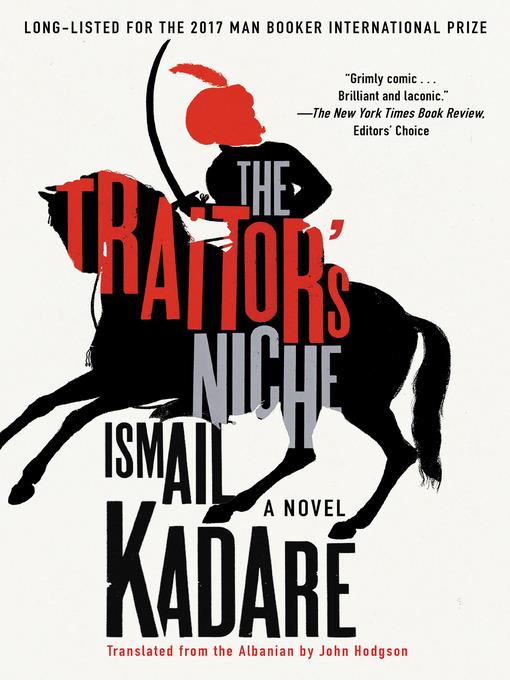
The Traitor's Niche
A Novel
- اطلاعات
- نقد و بررسی
- دیدگاه کاربران
نقد و بررسی

April 30, 2018
Forty years after its first publication, Kadare’s magisterial novel is available in English. Set during the height of the Ottoman Empire in Constantinople, the novel opens by introducing Abdullah, who tends to the niche in a Constantinople square where the heads of the empire’s enemies are displayed for tourists and to discourage would-be rebels. But Albania still resists Ottoman rule under the leadership of Ali Tepelena, its governor. After he is executed, his head is entrusted to courier Tunj Hata, who is charged with bringing it to the Traitor’s Niche. On the way, Hata has surreal adventures while earning a little extra money by displaying the head at the small villages between Albania and his destination at the heart of the empire. Once Hata’s quest is completed, Kadare turns his attention to those whose cultures face extinction under the law, cutting between Hata, Abdullah, the late Ali in his final hours, and Ali’s wife Vasiliqia. In so doing, Kadare brilliantly examines the private cost of despotism while illustrating a crucial episode in the history of Albania. Kadare’s powerful, nimble novel is a gem.

April 1, 2018
Albania's most prominent author--he claimed the inaugural Man Booker International Prize, among other honors--Kadare writes keenly about tyranny through the ages. Originally published in 1978 and appearing in the United States for the first time in a fine new translation, this work unfolds in the 1800s Ottoman Empire. Albania's Ali Pasha, known as Black Ali, has fomented rebellion against the empire, and Hurshid Pasha must relieve him of his head or lose his own. In fact, traitors are being regularly decapitated, so much so that a special niche has been created to house their heads in a square in the imperial capital, the better to subdue the populace. Courier Tundj Hata does good business on the side as he storms through an eerie landscape to deliver heads, which are guarded by the hapless Abdulla, his personal life in tatters; life goes on as we learn that Black Ali rebelled as much for himself as for his people. VERDICT Though occasionally slowed by detailed historical layering, this piercingly beautiful work quietly delivers a persuasive sense of human violence.
Copyright 2018 Library Journal, LLC Used with permission.

April 1, 2018
A political fable of decapitation amid totalitarian oppression combines wickedly funny satire with darker, deeper lessons.One of a series of books by Albania's premier novelist (Twilight of the Eastern Gods, 2014, etc.) that was banned in his homeland, this novel was published in 1978 but has only recently been translated into English. The only signs that it's set in the early 19th century are offhand references to Byron and Napoleon; otherwise it reads less like historical fiction than timeless prophecy, as it anticipates the relentless expansion of an empire "encompassing three continents, twenty-nine peoples, six religions, four races, and forty languages."In the language of a fairy tale, "the empire was larger than the night. People said that when dusk fell at one end, dawn rose at the other." The title refers to the spot in the town square where the severed heads of rebel leaders are displayed and preserved, offering a cautionary lesson to the visitors who flock to the spectacle. There are a pair of protagonists--Abdulla, who guards the heads as the "keeper of the Traitor's Niche," and Tundj Hata, the imperial courier sent to retrieve the heads and deliver them by horseback for their public display. The narrative concerns a rebellion and its aftermath in the outpost of Albania, which must then undergo the process by which all conquered peoples are absorbed into the empire. Thus, the "full erasure of national identity" encompasses "the reduction of the language into Nonspeak" and the eradication of all other forms of national culture. Though the guard and the courier never appear in the same scene, the novel's resolution finds one in open rebellion, having gone mad, as the other continues with business as usual. The separation of the head from the body, or the intellect from the emotions, takes other forms than capital punishment.Kadare's political impact and significance have made him an oft-mentioned candidate in Nobel Prize handicapping.
COPYRIGHT(2018) Kirkus Reviews, ALL RIGHTS RESERVED.




دیدگاه کاربران